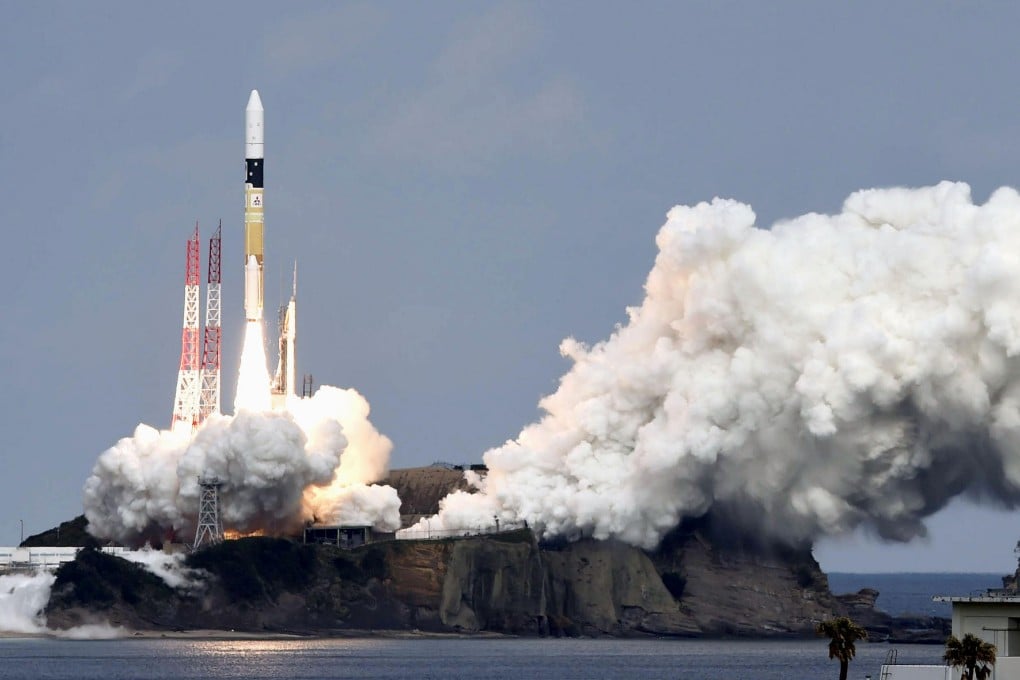Japan launches Hayabusa 2 probe on mission to 1999JU3 asteroid
Explorer to collect samples which may shed light on how life began

Japan yesterday successfully launched a probe destined for a distant asteroid on a six-year mission, just weeks after a European spacecraft's historic landing on a comet.
The explorer, Hayabusa 2, blasted off aboard Japan's main H-IIA rocket from Tanegashima Space Centre. The launch had been delayed due to bad weather.
Hayabusa2 successfully separated from the H-IIA and entered the intended orbit around earth, the Japan Aerospace Exploration Agency (JAXA) said. The probe will use earth's gravity to slingshot it towards its target.
Television footage showed JAXA crew at ground control clapping as the launch was confirmed a success, while social media users around the world tweeted their congratulations.
The 31-billion-yen (HK$2 billion) project will send the explorer towards the 1999JU3 asteroid in deep space. It will blast a crater in the asteroid to collect materials unexposed to millennia of wind and radiation, in the hope of answering some fundamental questions about life and the universe.
It is expected to reach the asteroid in mid-2018 and spend around 18 months in the area. It will also drop tiny MINERVA-II rover robots as well as a French-German landing package named Mobile Asteroid Surface Scout (MASCOT) for surface observation. If all goes well, asteroid samples will be returned to earth in late 2020.